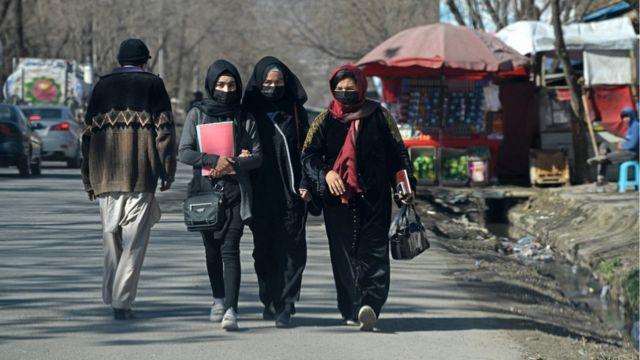Taliban troops marched through Kabul on August 15, 2021, capping a massive assault that saw them seize 33 of the nation’s 34 provinces in just nine days. The Taliban’s early policies were fairly lax, permitting females to enroll in kindergarten and higher education.
However, the government of the Taliban started imposing more limitations on women, banning their work and excluding them from secondary schools and colleges. Both Afghans and the foreign world harshly criticized the Taliban’s choices. Even some powerful Taliban officials spoke out against the choice to forbid girls’ schools. Given the Taliban’s powerful public demonstration of coherence and unity, this is an uncommon event.
The Taliban’s top officials have frequently promised, both in private and in public, that they won’t prevent females from going to school. Foreign officials and politicians are puzzled and irritated by the Taliban’s conduct as a result of their sudden decisions. Many claim that they were duped by Taliban leaders who made fundamental rights promises to Afghan women in foreign forums. There have been issues with who is in charge of making these choices and who has the power to overturn them. Did the Taliban intentionally deceive Afghans and the wider world? We must closely examine how the Taliban run their government in order to understand the intricacies.
Afghanistan was ruled by an emirate system when the Taliban first took power in the 1990s. A chief, known as the “emir,” has essentially unrestricted control over all the activities of the state in an emirate system of government. The emir’s ability to legislate or regulate what he deems appropriate has few checks and balances. The emir in the Taliban’s interpretation of an emirate possesses such great authority that he or she is not required to abide by the decisions of any committees or shuras. Instead, even when the emir’s choice conflicts with that of the committee, it must be followed. Similar to public officials, national councils and legislatures operate at the emir’s complete authority.
Mullah Omar, the autocratic ruler of Afghanistan during the 1990s, only implemented policies that he saw fit. According to some reports, a large portion of the leadership council members were willing to turn over Osama bin Laden to the US in order to avoid a military confrontation with the country after 9/11, but Mullah Omar refused to do so because he saw Bin Laden as a guest living under Taliban protection. Even though some of the Taliban officials might not have concurred with Mullah Omar’s choice, they were all required to follow it.
Mullah Omar assigned nearly all duties to a governing committee he established during the insurgency of the 2000s. This command group rapidly established itself as the insurgency’s top decision-maker. The executive committee was in charge of making important choices like hiring, firing, and establishing the course of policy. Mullah Omar fled, and the leadership council assumed control of the rebellion, making choices that were supported by the council.
The leadership council was essential in saving the movement and the rebellion at pivotal moments such as after the death of Mullah Omar or later after the death of Akhtar Mohammad Mansoor by making critical decisions. Nearly all significant choices during the two decades of the rebellion were taken by the leadership committee. Since numerous promises were made about allowing females to attend school, it is possible that the leadership committee made this choice during the uprising.
The Taliban troops launched their lightning assault on August 15, 2021, marching through Kabul and shocking everyone, including the Taliban leadership. Sheikh Hebatullah Akhunzada, the supreme leader of the Taliban, moved swiftly to establish his authority after assuming office. He did this by dissolving the leadership council and removing his subordinates from their posts.
The ruler, in this case Hebatullah Akhunzada, has unrestricted authority in an emirate-style government as long as his choices do not conflict with Shariah law and everyone else is obligated to submit to him. Hebatullah Akhunzada appears to have a preference for governing Afghanistan in a manner similar to that of Taliban founder Mullah Omer. a strong leader who enforces a stringent version of Shariah law while living seclusion in Kandahar.
According to reports, Hebatullah Akhunzada made the choice to shut females’ secondary institutions and universities. The majority of other powerful Taliban figures appear to disagree with this choice and may be trying to convince Akhunzada to reinstate the right of females to an education. There have been numerous promises that the prohibition on girls’ schooling is temporary and that it will be reviewed. It is significant to remember that in an emirate system, an emir’s decree or policy is temporary and only holds true up until the induction of a new Ameer.
The Taliban leadership is now divided to an unprecedented degree over the subject of females’ education. If this issue is not addressed, it may lead to dissension within the Taliban organisation and may further alienate Afghan society as a whole. But so far, there are few indications that the Emir will move from his stance.

